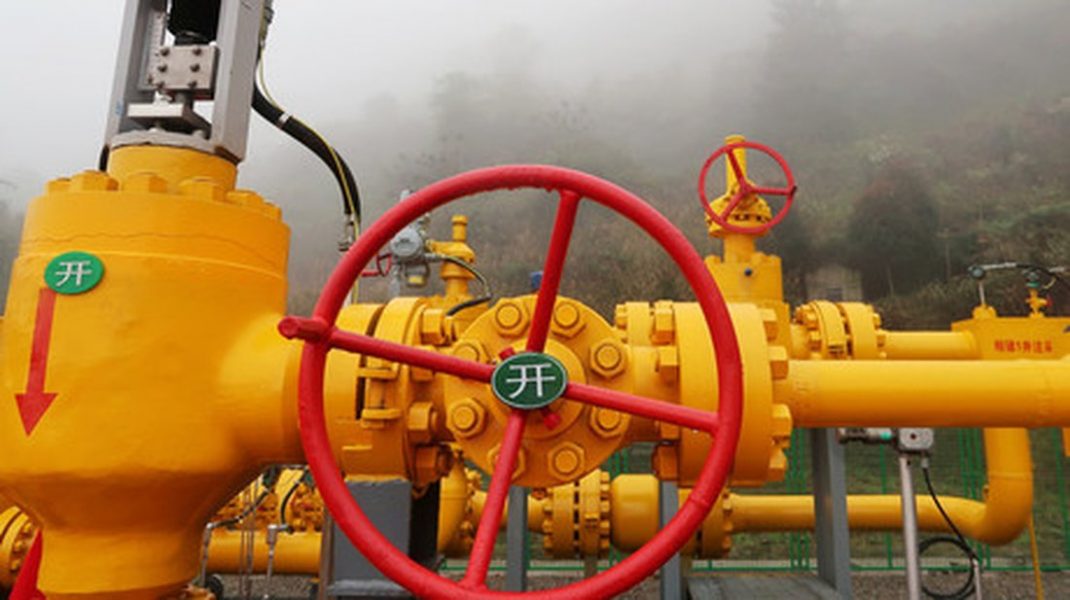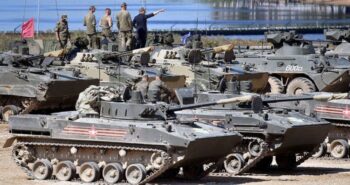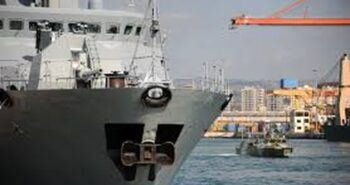By Rhiannon Smith
 Civil war endangers the state-owned oil company’s ability to maintain crude production and threatens the collapse of the entire sector.
Civil war endangers the state-owned oil company’s ability to maintain crude production and threatens the collapse of the entire sector.
The polarising conflict that has left a trail of bombed out buildings, civilian casualties, and broken trust across Tripoli and western Libya since April shows no sign of letting up.
Forces under the so-called Libyan National Army (LNA) led by Khalifa Haftar keep trying to push forward along frontlines south of the capital while forces opposed to the LNA’s assault, operating under the umbrella of the internationally-recognised Government of National Accord (GNA), keep pushing back.
Both sides are heavily reliant on foreign support, particularly arms, ammunition and drones, to maintain their operations. But attempts to curtail foreign interference have failed to gain traction, suggesting the trend of outside support is likely to continue well into 2020. Likewise, the bloodshed and hostile rhetoric by rival factions has deepened division and mistrust among Libyans, a legacy which will be difficult to overcome.
Short-term resilience
Despite the worsening conflict, on the surface, Libya’s oil sector appears to be weathering the storm. Oil production has not been significantly impacted by the fighting, remaining at around 1.3mn bl/d according to Mustafa Sanallah, the chairman of Libya’s National Oil Corporation (NOC). Notably, the conflict zones are not in the immediate vicinity of any major oilfields or pipelines and there have been no blockades or long-term closures since the fighting began.
At the national level, both the LNA and anti-LNA coalitions need the oil to keep flowing to the NOC so that they can, in turn, receive oil revenues through the Tripoli-based Central Bank of Libya (CBL)—a peculiarity of Libya’s centralised economic system is that the CBL continues to pay salaries, subsidies and other funds to the LNA coalition even as they attack the capital.
Although LNA-aligned forces have secured the vast majority of Libya’s onshore oilfields, the UN Security Council appears united in its support for the NOC as the sole legitimate oil company in Libya, despite being divided over other aspects of the Libyan civil war. As a result, the LNA currently has more to lose, both economically and reputationally, by blockading the facilities and attempting to sell the crude independently than by keeping the oil flowing to its enemies.
Despite these systemic stabilisers, the current ‘dual key’ system—whereby the LNA secures the oilfields and the GNA receives and distributes the oil receipts—is becoming increasingly fragile. The NOC itself warns that continued conflict will undermine its authority and lead to the collapse of the entire oil sector.
Concerns about insecurity and political instability have already led to some oil majors getting cold feet, despite several non-European companies nominally agreeing to resume activities recently. A landmark deal between Italy’s Eni and BP, which should have seen the Italian firm kickstart exploration operations in three exploration blocks in early 2019 has been delayed, while Germany’s Wintershall Dea has threatened to pull out of the country.
Foundations under attack
The NOC maintains that it is neutral in the conflict, an increasingly tricky line to tread. On one side, the LNA has conducted a campaign of intimidation and disinformation against the NOC and its staff, portraying the latter as biased after it accused the LNA of militarising oil facilities and then restricted jet fuel supplies to the East. Most recently, the LNA-aligned authorities have established a parallel fuel distribution company in the eastern region, attempting to access the bank accounts of the existing NOC subsidiary.
Ultimately, the LNA is trying to seize Tripoli because it wants to control all the strings of power in Libya, including the NOC and the CBL. Given an outright conquest of Tripoli remains elusive, it is looking for other ways to access the country’s economic resources. In the most extreme scenario, this could result in the LNA effectively partitioning the country by seizing the oil assets in eastern Libya. Even if a ceasefire is reached soon, the LNA and its supporters will not lightly relinquish the goal of greater economic autonomy for the east, meaning the oil sector will continue to be leveraged for political gain for many months to come.
On a more practical level, the fighting in Tripoli has drawn LNA-aligned forces away from areas such as southwestern Libya, creating a power vacuum which could mean oilfields and exploration sites in these areas are increasingly vulnerable.
The NOC remains chronically underfunded and the ongoing conflict has diverted further monies away from its budget. In addition, since the conflict started, the GNA has suspended much needed economic reforms—meaning Libya’s economy is likely to remain under strain, even if the conflict ends soon. As a result, the NOC will likely struggle to fund all the maintenance works required to keep production steady in 2020, let alone begin new expansion projects. As long as the conflict continues, and even if a ceasefire is agreed, it is likely that meaningful reengagement and investment from IOCs will be delayed until longer-term stability looks more assured.
Although Libya’s energy sector looks surprisingly resilient at present, the signs indicate that the current conflict and division will endure. The most likely outlook for 2020 is a stagnation or gradual deterioration of production as investment falls away and insecurity persists. But, at worst, the new year could see a catastrophic collapse of the foundations underpinning Libya’s oil sector, leading to a rapid decline in production and the longer term destabilisation of the country.
***
Rhiannon Smith – Researcher, writer and analyst focusing on Libya. Managing Director of Libya-Analysis.com
______________





